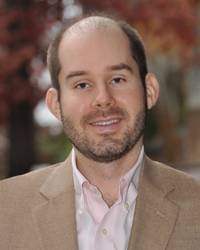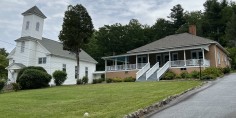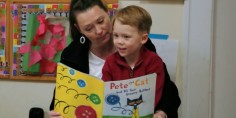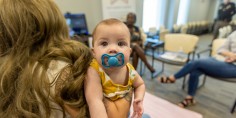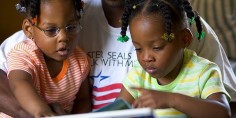How do we equip our communities to support children, youth, and families, using the best available science? Over the past several decades, many strategies have emerged from the prevention and behavioral sciences with demonstrated ability to prevent poor and costly outcomes, nurture successful child development, and promote child well-being, safety, and family stability.
The Positive Parenting Program (Triple P) system of interventions, for example, demonstrated substantial impacts reducing child abuse and neglect, out-of-home child placements, and child injuries in an 18-county randomized trial in South Carolina. Furthermore, Triple P has demonstrated in numerous other scientific trials the capability to promote child social, emotional, and behavioral development and increase parents’ confidence to parent with success.
Children, after all, don’t come with a parenting manual, as they say. And as a father of three young children, I’ll be the first to admit that my wife and I have pulled out our parenting tip sheets for advice about how to handle common parenting challenges.
North Carolina’s Division of Public Health and Division of Social Services, along with a handful of local and regional partners, are on to Triple P. They’re hoping that the system of Triple P programs, rolled out so far across 36 counties, can bring similar population-level returns as in the South Carolina trial.
But herein lies the challenge (it’s never as simple as we hope, is it?). Triple P, like all evidence-based prevention and intervention strategies, only reaches its potential programmatic impact when it is fully and effectively implemented in community service systems.
If there is a core tenet in the field of implementation science, it’s that successfully and sustainably scaling a new program in an existing community service system is difficult. It’s messy. Without the right supports and infrastructure, it can even be rare to fully realize the intended benefits.

